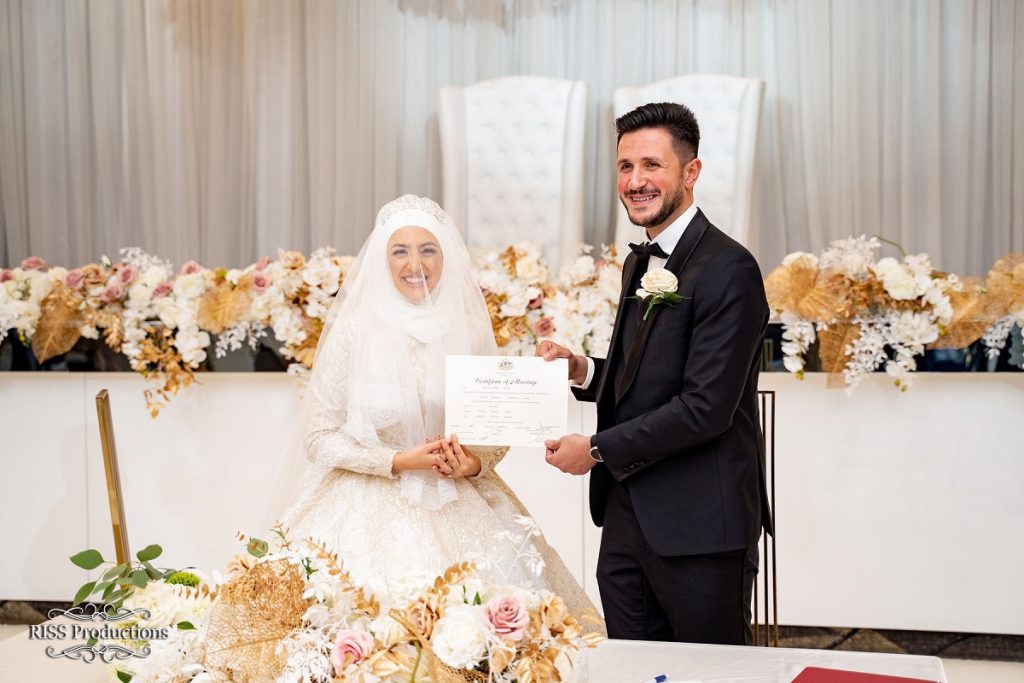Weddings are one of the most cherished traditions in Arab and Muslimthe United States cultures, symbolizing the union not only of two individuals, but also of families, communities, and cultural legacies. In the United States, Arab and Muslim Americans continue to preserve and adapt these vibrant customs by choosing venues that reflect both their heritage and modern American life.
1. Banquet Halls and Luxury Event Venues
Across cities with large Arab or Muslim populations—such as Dearborn (MI), Paterson (NJ), Anaheim (CA), and Houston (TX)—lavish wedding halls are a common choice. These venues often offer large spaces for hundreds of guests, with halal catering, traditional décor, Arabic music or dabke dancers, and custom features like gender-separated areas or prayer accommodations.
Popular venues include:
-
La Fontaine Bleue (Maryland)
-
Byblos Banquet Hall (Michigan)
-
Royal Palace Banquet Hall (California)
-
Crystal Ballroom (Florida)
These places are often booked months in advance due to their popularity within the Arab and Muslim communities.
2. Mosques and Islamic Centers
Some families opt for a nikah (Islamic marriage ceremony) to be held at mosques or Islamic centers, followed by a more festive celebration elsewhere. Centers like the Islamic Center of America (Dearborn) and the Islamic Society of Orange County have designated areas for hosting religious weddings and modest gatherings.
Many mosques provide:
-
Imam-led nikah officiation
-
Gender-separate seating if requested
-
On-site catering or kitchen access
-
Audio-visual systems for prayers and speeches
3. Outdoor and Cultural Spaces
In warmer months or for more modern tastes, parks, gardens, and cultural museums have become increasingly popular—especially among second-generation Arab or Muslim Americans. Couples choose scenic spaces for wedding photography and personalized décor that merges traditional and Western elements.
Examples include:
-
Brooklyn Botanic Garden (NY)
-
Arab American National Museum Courtyard (MI)
-
Lakeview Pavilions (MA)
These venues allow more flexibility in ceremony style while still honoring heritage.
4. Home and Community Center Weddings
Smaller, intimate weddings are often hosted at family homes or rented community halls, especially when prioritizing simplicity, budget, or religious modesty. Local community centers, such as Arab cultural societies or Muslim community clubs, often provide affordable rental spaces.
Cultural Traditions Maintained
Regardless of the venue, many customs remain central to these weddings:
-
Zaffe (traditional Arab entrance music/dance)
-
Halal catering with Arabic, Mediterranean, or South Asian food
-
Separate dancing spaces (in more conservative families)
-
Henna night and gift-giving rituals
-
Qur’anic recitation and dua (prayers)
Arab and Muslim Americans are embracing the diversity of wedding venues across the U.S. while staying rooted in their traditions. Whether in an elegant ballroom, a mosque, or a backyard tent, these weddings beautifully express the blend of heritage and American life—celebrating love, family, and faith in unforgettable ways.

